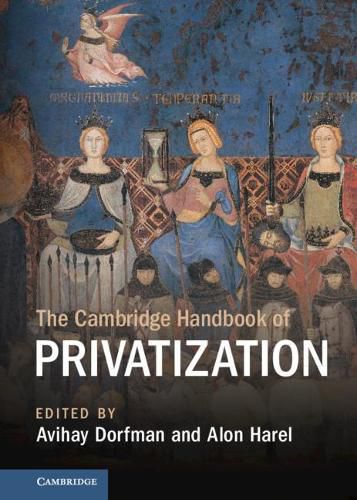Readings Newsletter
Become a Readings Member to make your shopping experience even easier.
Sign in or sign up for free!
You’re not far away from qualifying for FREE standard shipping within Australia
You’ve qualified for FREE standard shipping within Australia
The cart is loading…






Some goods and services seem to be fundamentally public, such as legislation, criminal punishment, and fighting wars. By contrast, other functions, such as garbage collection, do not. This volume brings together prominent scholars from a range of academic fields - including law, economics, philosophy, and sociology - to address the core question of what makes a certain good or service fundamentally public and why. Sometimes, governments and other public entities are superior because they are more likely to get at the right decisions or follow fair procedures. In other instances, the provision of goods and services by public entities is intrinsically valuable. By analyzing the these answers, the authors also explore the nature of the state and its authority. This handbook explores influential arguments for and against privatization and also develops a number of key studies explaining, justifying, or challenging the legitimacy and the desirability of public provision of particular goods and services.
$9.00 standard shipping within Australia
FREE standard shipping within Australia for orders over $100.00
Express & International shipping calculated at checkout
Some goods and services seem to be fundamentally public, such as legislation, criminal punishment, and fighting wars. By contrast, other functions, such as garbage collection, do not. This volume brings together prominent scholars from a range of academic fields - including law, economics, philosophy, and sociology - to address the core question of what makes a certain good or service fundamentally public and why. Sometimes, governments and other public entities are superior because they are more likely to get at the right decisions or follow fair procedures. In other instances, the provision of goods and services by public entities is intrinsically valuable. By analyzing the these answers, the authors also explore the nature of the state and its authority. This handbook explores influential arguments for and against privatization and also develops a number of key studies explaining, justifying, or challenging the legitimacy and the desirability of public provision of particular goods and services.